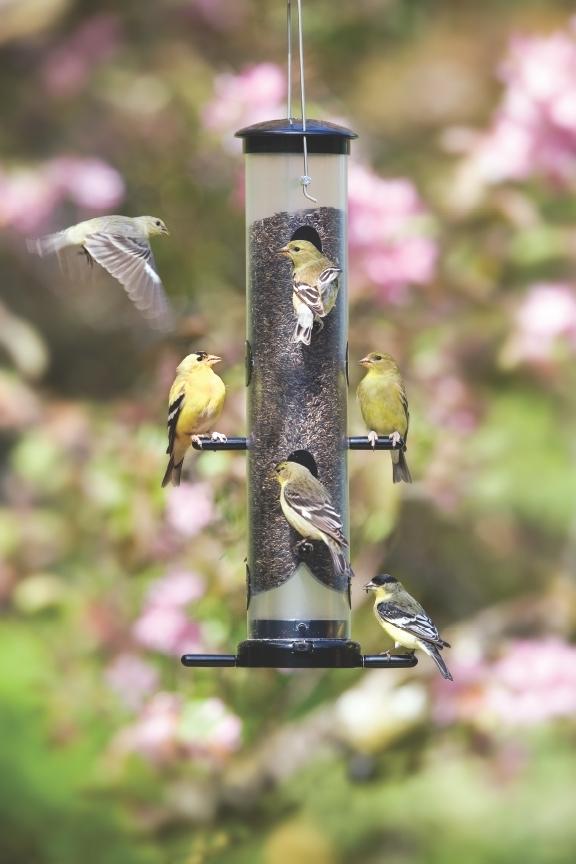Why Should Birdfeeders be Cleaned Regularly

We are not pointing fingers, but we sure see some really dirty feeders hanging in some yards. Thankfully for the offenders, I have not stopped to issue citations yet (wink). Here are the three main reasons you should regularly clean your feeders:
- A thorough cleaning removes dirt, mold, fecal matter, etc., making your feeder a healthier place for the birds.
- Clean feeders stay in better repair. Layers of grime will cause wood to rot more quickly. Mold also causes pitting and corrosion of some metal feeder parts. In finch feeders, we've actually seen aluminum perches eaten all the way through with corrosion from moldy food that has been allowed to sit for weeks or months.
- Beautiful birds deserve being viewed on a nice background. There's nothing worse than having a much sought after Lazuli Bunting show up at the feeder and taking a photo, only to realize a dirty feeder ruined the shot.
How often should you wash feeders?
The more often, the better, but a realistic goal would be about once a month. You only need a few items to make the job easy: dish soap, bleach, a bucket or utility sink, and a variety of sizes/shaped brushes. Soak the feeders in warm, soapy water for about 15-20 minutes, scrub, rinse, then soak briefly in a mild bleach water solution to disinfect (1/4 c to a gallon of water), and rinse again. Let feeders dry in the sun before refilling. If you have feeders with antimicrobial protection, you can skip the bleach rinse. Most feeders can withstand cleanings, but some may simple need to be replaced. Clean restaurants provide happy dining experiences. Happy Birdfeeding!
(Kathy and her husband, John, own and operate the Wild Birds Unlimited, located in Billings and at 111 S. 24th St. West. She is a Certified Bird Feeding Specialist and is past president of the Yellowstone Valley Audubon Society).

